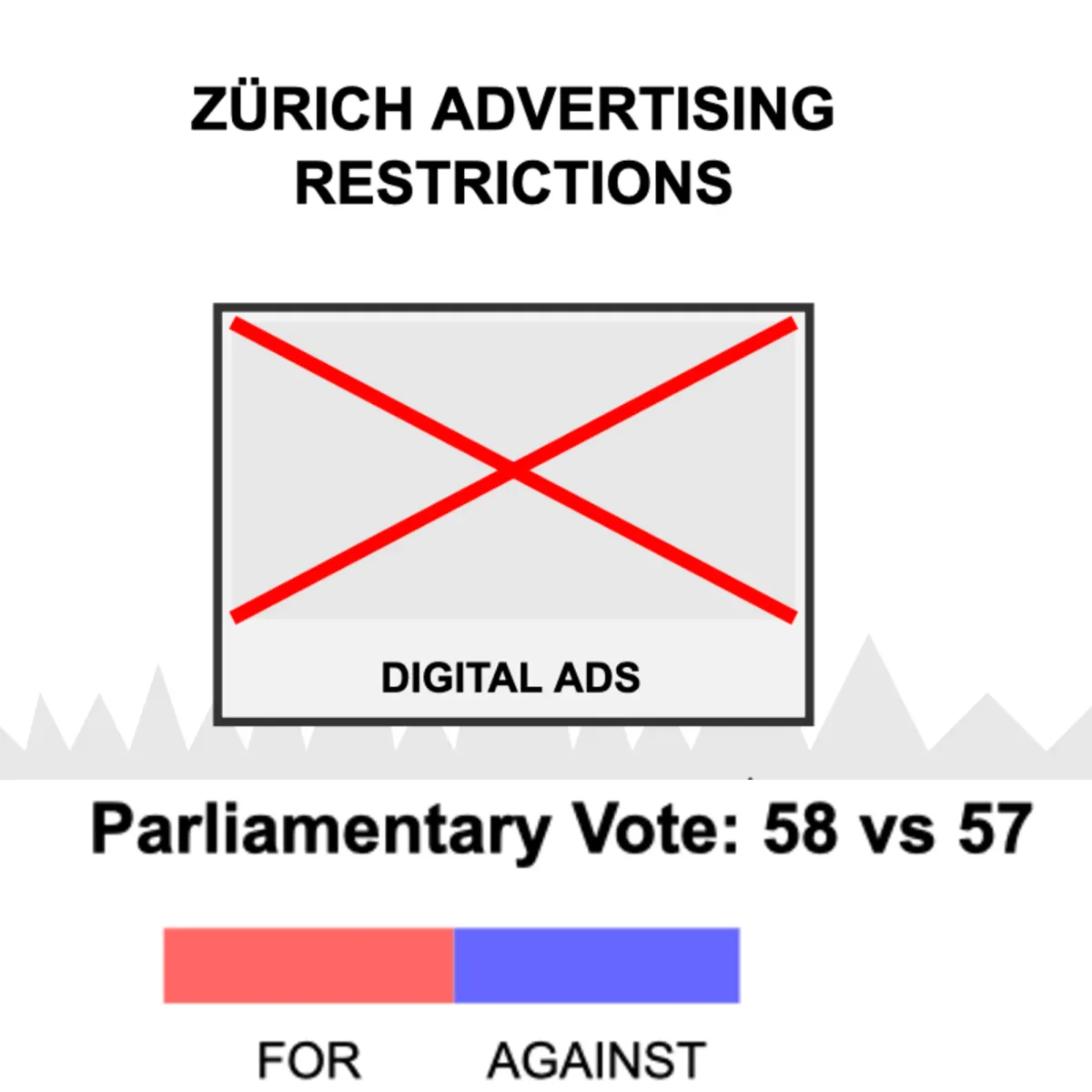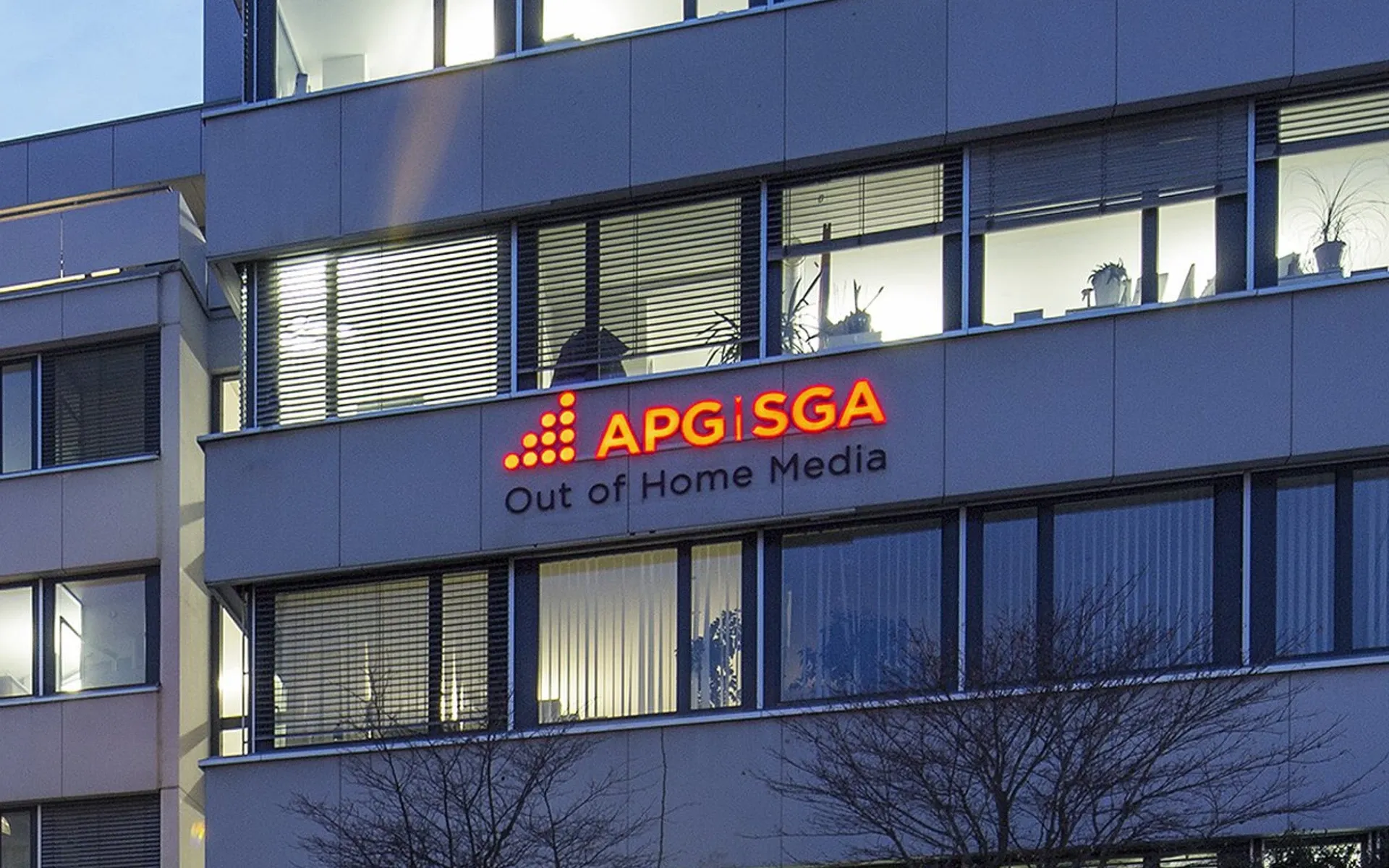
In a decision that has sparked intense debate across political and business sectors, the Zürich city parliament narrowly approved a motion to significantly restrict advertising in public spaces on March 19, 2025. The left-wing majority secured the vote by a margin of just one vote, with 58 representatives supporting the measure against 57 opposing it.
The motion, initially proposed by the Alternative List (AL) and supported by the Social Democrats (SP) and Greens, mandates the city council to develop a new ordinance within two years that will reduce commercial advertising throughout public areas and completely ban moving digital advertising screens. These restrictions will apply to all locations visible from the street, including privately owned advertising spaces and shop windows.
According to Michael Schmid of the Alternative List, advertising represents a form of manipulation with harmful consequences. "It fuels overconsumption and thereby contributes to environmental destruction and global warming," Schmid stated during parliamentary discussions. He specifically mentioned advertisements for air travel and fast fashion as particularly problematic. Digital screens also consume significant electricity, adding to environmental concerns.
The left-wing parliamentarians described what they termed an "invasive commercialization" of street space that bothers many residents. Anna Graff from the Social Democrats argued that outdoor advertising hinders the "eco-social transformation" of the economy.
Financial implications
The implications of this decision extend beyond environmental considerations. Zürich's city council, despite being dominated by left-wing parties, opposes the measure. According to André Odermatt, head of the Building Department and himself a member of the Social Democratic Party, outdoor advertising is an expression of a busy, vibrant city. The ban would harm local businesses and force advertising to migrate to the internet, where profits benefit international corporations rather than local entities.
The city estimates it would lose approximately 28 million Swiss francs in annual revenue from advertising spaces. This significant sum is currently directed toward public services and infrastructure improvements. Additionally, the energy consumption of digital advertising installations amounts to only 0.07 per thousand of the city's total energy consumption, making the environmental impact of a local ban "extremely modest," according to Odermatt.
The city council had previously instituted a moratorium on new digital advertising installations and illuminated rotating poster columns until 2030, but this compromise measure did not satisfy the parliamentary majority.
Economic and cultural arguments
Opposition to the advertising restrictions came from across the political spectrum. Patrik Brunner of the Liberal Democratic Party (FDP) defended outdoor advertising as providing important information and creating "a matching of supply and demand." Nicolas Cavalli from the Green Liberal Party described outdoor advertising as a "cultural asset," while Jean-Marc Jung of the Swiss People's Party (SVP) argued that it enables efficient consumption.
Critics emphasized the proposal's economic impact, warning that a ban would eliminate jobs in the advertising industry and among poster companies. They also questioned the environmental justification, comparing it to the recently enacted leaf blower ban, which they characterized as having minimal climate benefit.
Andreas Weiss, a strategy and research consultant at Mediaschneider AG, one of Switzerland's largest media agencies, expressed strong opposition to the decision. "This decision is not only extremely annoying and offensive for our industry and our advertising clients—it also seems unworldly, counterproductive, and reveals a disturbing view of humanity," Weiss stated eight days after the vote.
Weiss argued that the motion reveals that its initiators consider Zürich residents to be "immature, vulnerable beings who are unable to make independent decisions." He added that the ban would not reduce advertising but merely shift budgets, primarily benefiting American internet giants rather than Swiss quality media. "For the local labor market, this means job losses," he concluded.
 PPC LandLuís Rijo
PPC LandLuís Rijo
Legal framework
The city council must now develop a detailed ordinance within two years. A similar strict ban on outdoor advertising was recently introduced in the Geneva municipality of Vernier. Last June, the Federal Supreme Court ruled that such restrictions were legal and did not violate economic freedom or property guarantees.
Nevertheless, the Zürich city council considers it questionable whether such a change could be legally implemented in the Canton of Zürich, which has different regulatory frameworks than Geneva.
This motion represents the third and most aggressive initiative by Zürich's left-wing parties against outdoor advertising. Two years ago, the SP, Greens, and AL passed a postulate demanding the shutdown of digital advertising spaces, but the city council took minimal action in response, which partly motivated the current stronger motion.
Public opinion
Public reaction has been mixed. A journalist for the national newspaper Blick called the ban "completely unworldly" in a commentary published on March 23, 2025. The article argued that while advertising can be annoying, banning it merely because it irritates some people makes little sense. The author contended that digital targeted advertising is far more problematic than regulated outdoor advertising.
"It is absurd when the public sector, as in Zürich, takes a sledgehammer approach to thoroughly regulated outdoor advertising," the Blick commentary stated. "Politicians are harming local businesses and the city itself."
Online comments reflect divided public opinion. Some citizens support the measure on environmental grounds, with one commenter noting that "especially advertising powered by electricity is wasteful compared to those people who are trying to save electricity." Others view it as government overreach, with another commenter asking, "paternalistic ideology, what's next?"
Timeline
- 2023: Zürich's left-wing parties pass a postulate requesting the shutdown of digital advertising spaces
- March 19, 2025: Zürich city parliament approves the motion to restrict advertising with 58 to 57 votes
- March 27, 2025: Media and advertising industry responds with strong criticism of the decision
- By March 2027: City council must develop and implement a new advertising ordinance
The development of the new advertising regulations will be closely watched by other Swiss municipalities and cities abroad, potentially setting precedents for how urban spaces manage commercial messaging in an era of increasing concern about consumerism and environmental impact.

